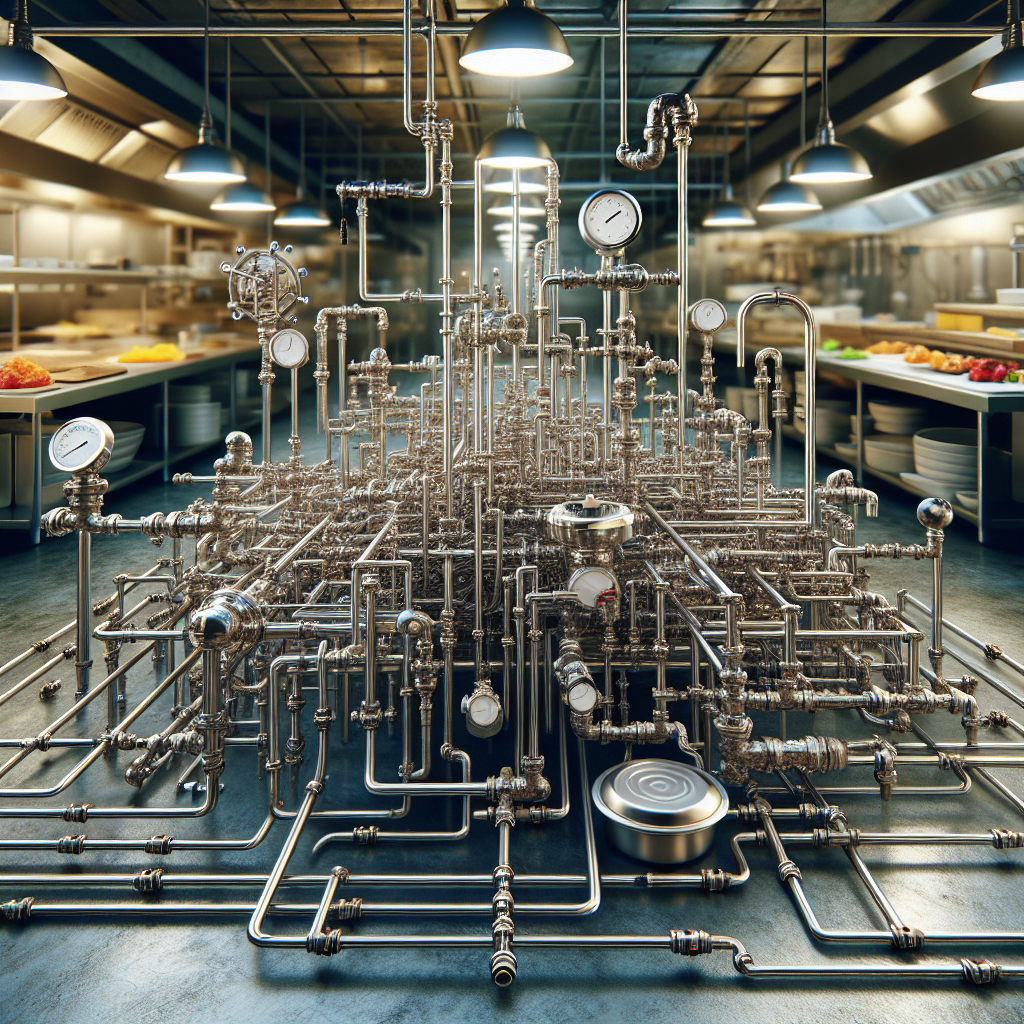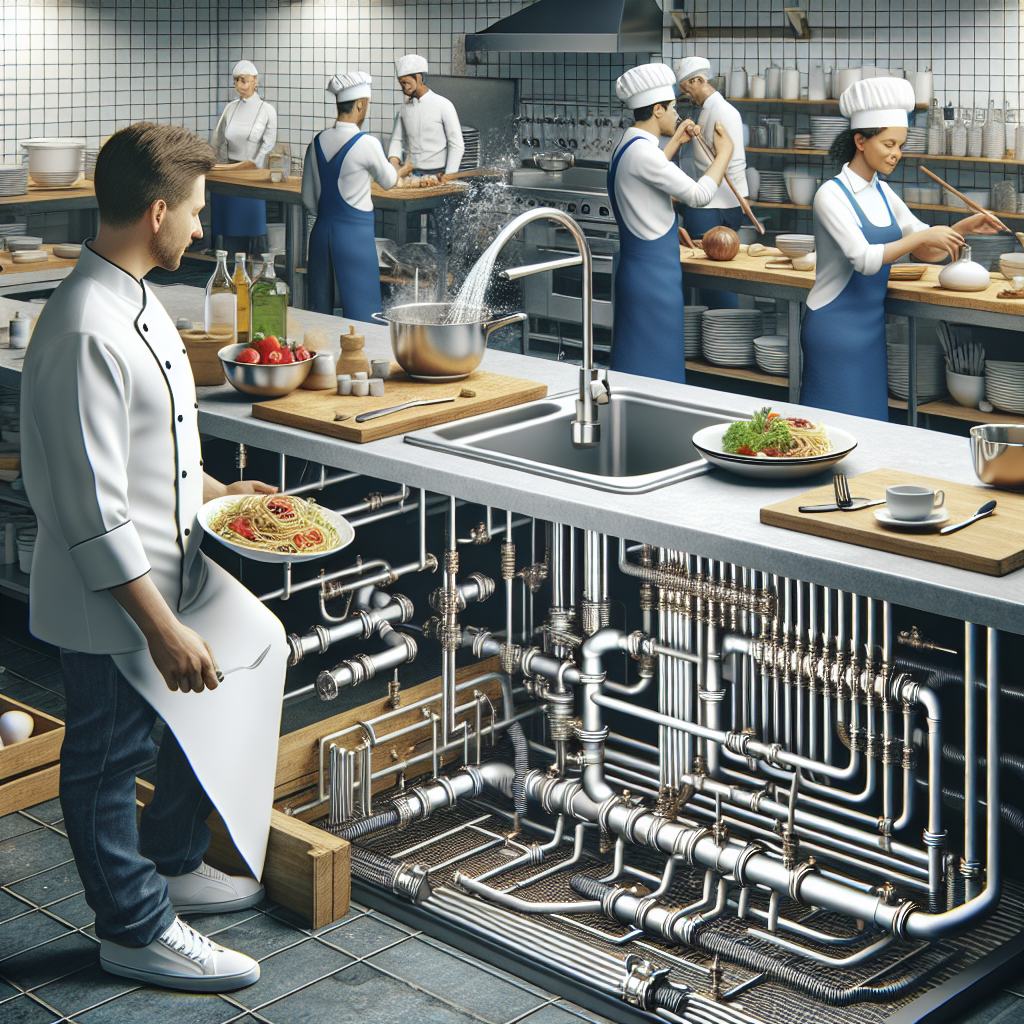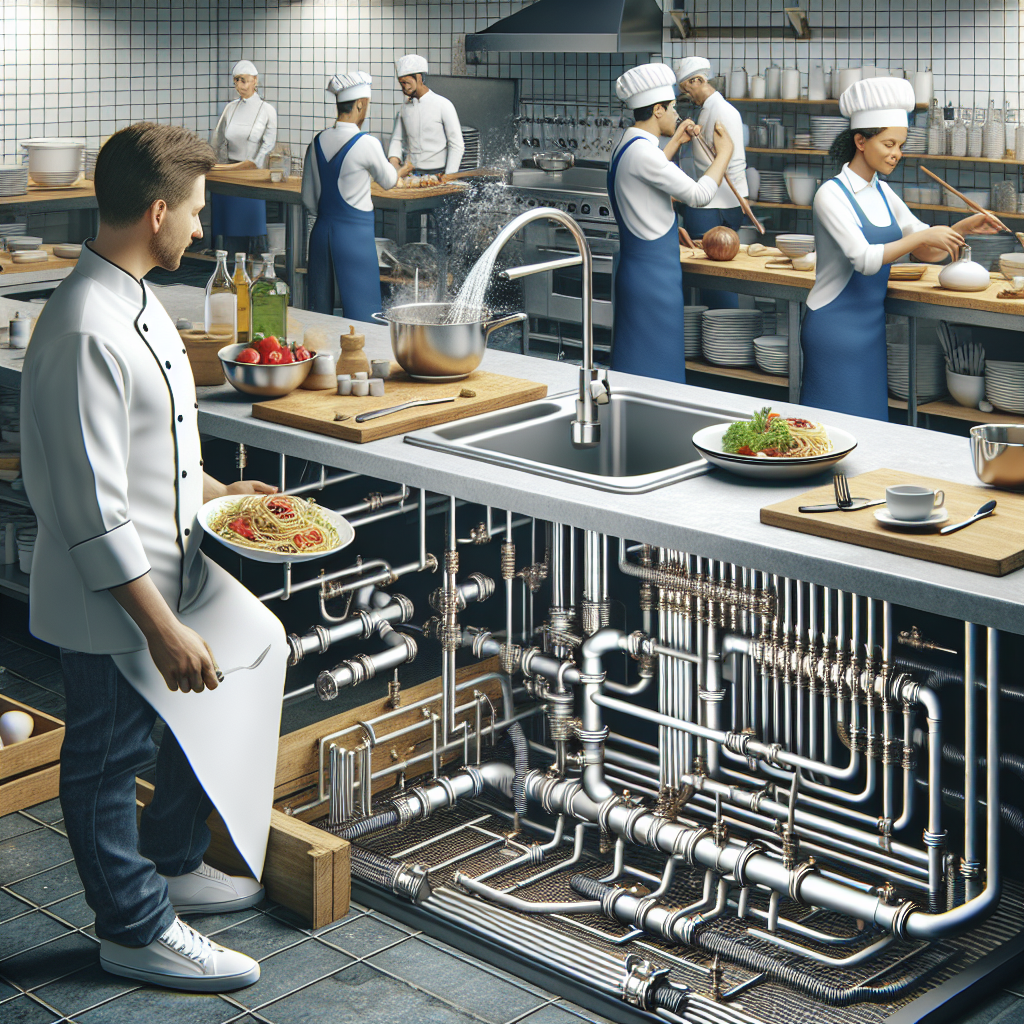In this article, you will discover the best plumbing practices specifically tailored for restaurants and commercial kitchens. Whether you’re a restaurant owner or a chef, having a well-functioning plumbing system is crucial for the smooth operation of your establishment. From ensuring proper grease trap maintenance to safely handling food waste disposal, this guide will provide you with invaluable tips that will help you maintain a clean and efficient kitchen environment. So, let’s dive into the world of best plumbing practices for restaurants and commercial kitchens!

Water Supply Systems
Types of water supply systems
When it comes to water supply systems for your restaurant or commercial kitchen, there are several options to choose from. The most common types include a direct water supply system and an indirect water supply system.
A direct water supply system is the simplest and most straightforward option. It involves a direct connection to the main water supply, with the water being readily available for use. This system is often used in smaller establishments where the demand for water is lower.
On the other hand, an indirect water supply system utilizes a storage tank to provide water to the establishment. This system is beneficial for establishments with higher water demands or locations that experience water shortages or fluctuations in water pressure. The storage tank ensures a constant supply of water, even during times of low pressure or water interruptions.
Choosing the right system for your restaurant or commercial kitchen
When deciding on the best water supply system for your restaurant or commercial kitchen, consider factors such as water demand, water pressure, and local regulations. It’s important to assess your specific needs and consult with a professional plumber to ensure you choose the system that will best meet your requirements.
For smaller establishments with lower water demand, a direct water supply system may be sufficient. However, if you anticipate a higher water demand or unreliable water pressure, an indirect water supply system with a storage tank would be a more suitable choice.
Additionally, it’s crucial to comply with local regulations and obtain any necessary permits or licenses for the installation of your water supply system. This ensures that your establishment operates in accordance with the law and maintains the safety and quality of your water supply.
Proper layout and installation of water supply lines
The layout and installation of water supply lines are critical to the efficient and safe operation of your restaurant or commercial kitchen. It’s essential to plan the layout meticulously, considering factors such as the location of sinks, faucets, appliances, and potential future expansion.
Professional plumbers should be involved in the installation process to ensure that the water supply lines are properly connected, secure, and leak-free. They will also ensure that the system is designed to handle the anticipated water pressure and volume.
Proper insulation of the water supply lines is another important aspect to consider. Insulation helps prevent heat loss and can improve energy efficiency. It also reduces the risk of frozen pipes during colder months, which can cause severe damage to your plumbing system.
Regular inspection and maintenance of supply systems
Regular inspection and maintenance of your water supply systems are crucial to identify and address any potential issues before they become major problems. It’s recommended to have a professional plumber perform routine inspections at least once a year.
During inspections, the plumber will check for leaks, corrosion, and any signs of damage or deterioration. They will also ensure that all components are functioning correctly, such as pressure regulators, valves, and backflow prevention devices.
Maintenance tasks may include flushing and cleaning water tanks, replacing worn-out components, and addressing any minor repairs. By staying proactive and conducting regular maintenance, you can extend the lifespan of your water supply system and minimize the risk of unexpected disruptions or costly repairs.
Waste Water Management
Importance of effective waste water management
Proper waste water management is essential for restaurants and commercial kitchens to maintain a clean, hygienic, and environmentally responsible operation. Effective waste water management ensures that wastewater is safely removed from the premises and disposed of in compliance with local regulations.
It’s crucial to understand that the wastewater from your establishment contains various contaminants, including food particles, grease, oil, and chemicals. If not managed properly, these contaminants can cause blockages in the drainage system, pollute water sources, and potentially lead to health hazards.
By implementing effective waste water management practices, you can contribute to the protection of the environment and the overall public health of your community. Plus, it can help prevent costly repairs and damage to your plumbing system.
Installation of proper drainage systems
Installing proper drainage systems is a key component of effective waste water management. The drainage system should be designed to handle the anticipated volume of wastewater and prevent any backups or blockages.
Drains should be strategically placed throughout the kitchen and other operational areas where water is used. This ensures that wastewater is efficiently collected and directed towards the main drainage system.
It’s important to choose high-quality drains and floor drains that are specifically designed for commercial kitchen use. These drains are typically equipped with grates and baskets to catch solid debris, preventing them from entering the drainage system.
Regular maintenance and cleaning of drainage systems
Regular maintenance and cleaning of your drainage systems are crucial to prevent clogs, odors, and potential health hazards. This includes routine inspection of drains, traps, and pipes to identify any signs of blockages or leaks.
Cleaning should be performed on a regular basis to remove accumulated grease, food particles, and other debris. This can be achieved through manual cleaning or by utilizing specialized equipment such as hydro jetting or drain snakes.
It’s important to note that certain cleaning agents may be harmful to your drainage system or the environment. Always choose cleaning products that are specifically designed for commercial kitchen drains and follow the manufacturer’s instructions.
Proper disposal of waste water
Proper disposal of waste water is essential to prevent contamination of water sources and comply with environmental regulations. Restaurants and commercial kitchens should have a designated and approved wastewater disposal system.
Waste water should never be dumped directly into storm drains, sewage systems, or surface water bodies without proper treatment. Instead, it should be directed to a grease interceptor or other treatment systems that remove contaminants before discharge.
Always consult with a professional plumber or wastewater management expert to ensure you have the appropriate disposal system in place. They will guide you in complying with local regulations and ensure that your waste water is disposed of safely and responsibly.


